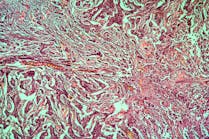NIH designates people with disabilities as a population with health disparities
Eliseo J. Pérez-Stable, M.D., director of the National Institute on Minority Health and Health Disparities (NIMHD), designated people with disabilities as a population with health disparities for research supported by the National Institutes of Health.
The decision was made in consultation with Robert Otto Valdez, Ph.D., the director of the Agency for Healthcare Research and Quality, after careful consideration of a report delivered by an NIMHD advisory council, input from the disability community and a review of the science and evidence. A report issued in December 2022 by the Advisory Committee to the (NIH) Director (ACD), informed by the work of the Subgroup on Individuals with Disabilities, explored similar issues faced by people with disabilities. The designation is one of several steps NIH is taking to address health disparities faced by people with disabilities and ensure their representation in NIH research.
NIMHD is the lead NIH institute on monitoring minority health and health disparities research. Designated populations experience significant disparities in their rates of illness, morbidity, mortality and survival, driven by social disadvantage, compared to the health status of the general population. A health disparity designation helps to encourage research specific to the health issues and unmet health needs of these populations. Other NIH-designated populations with health disparities include racial and ethnic minority groups, people with lower socioeconomic status, underserved rural communities and sexual and gender minority groups.
People with disabilities often experience a wide and varying range of health conditions leading to poorer health and shorter lifespan. In addition, discrimination, inequality and exclusionary structural practices, programs and policies inhibit access to timely and comprehensive healthcare, which further results in poorer health outcomes. People with disabilities who also belong to one or more other populations with health disparities fare even worse.
NIH also issued a notice of funding opportunity calling for research applications focused on novel and innovative approaches and interventions that address the intersecting impact of disability, race and ethnicity, and socioeconomic status on healthcare access and health outcomes.
NIH recently issued a Request for Information (RFI) inviting feedback on a proposed update to the NIH mission statement following the recommendations by the ACD informed by the work of the Subgroup on Individuals with Disabilities. The ACD issued a report in December 2022 that included the recommendation to update the NIH mission statement, particularly the phrase “reduce […] disability.” NIH leadership and subject matter experts evaluated the current mission statement and proposed a revised mission statement. The RFI is open through Nov. 24, 2023.





